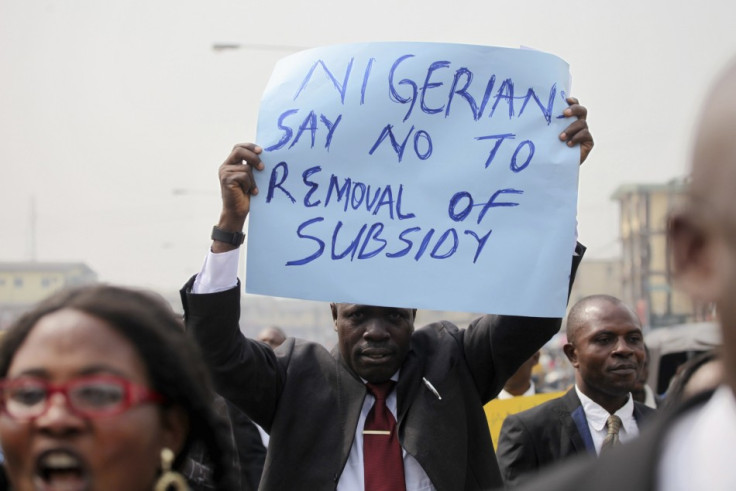Nigeria on Strike over Slashed Fuel Subsidies

Nigerian unions have called a nationwide strike over soaring fuel prices as tensions increase between protesters and security forces.
The strike, which has brought much of the country to a standstill, has been called to protest against the government's controversial move to end fuel subsidies, causing petrol prices to almost instantly double.
Nigeria, Africa's largest oil producer, has also seen transport costxs soar, fuelling anger in a country where many people still live on less than $2 dollars per day.
Protests have been spreading despite the insistence of President Goodluck Jonathan that fuel subsidies need to be removed.
Tensions with security forces have also increased with soldiers accused of using teargas and excessive force against demonstrators.
Police killed a demonstrator last week, activist said, although that was denied by the authorities.
Despite pressure from some members of the parliament, Goodluck vowed to press ahead with the subsidy removal, saying it was economically sustainable.
Ahead of the strike, he addressed the nation and promised to reduce salaries for political office holders and to improve public transport.
"To save Nigeria, we must all be prepared to make sacrifices," he said.
The government is also battling spiralling violence in the north of the country, mainly blamed on the Islamist group Boko Haram. Goodluck said the situation was worse than Nigeria's civil war of 1967-70.
"The situation we have is even worse than the civil war," he said.
"During the civil war, we knew and we could predict where the enemy was coming from. But the challenge we have today is more complicated."
© Copyright IBTimes 2025. All rights reserved.





















